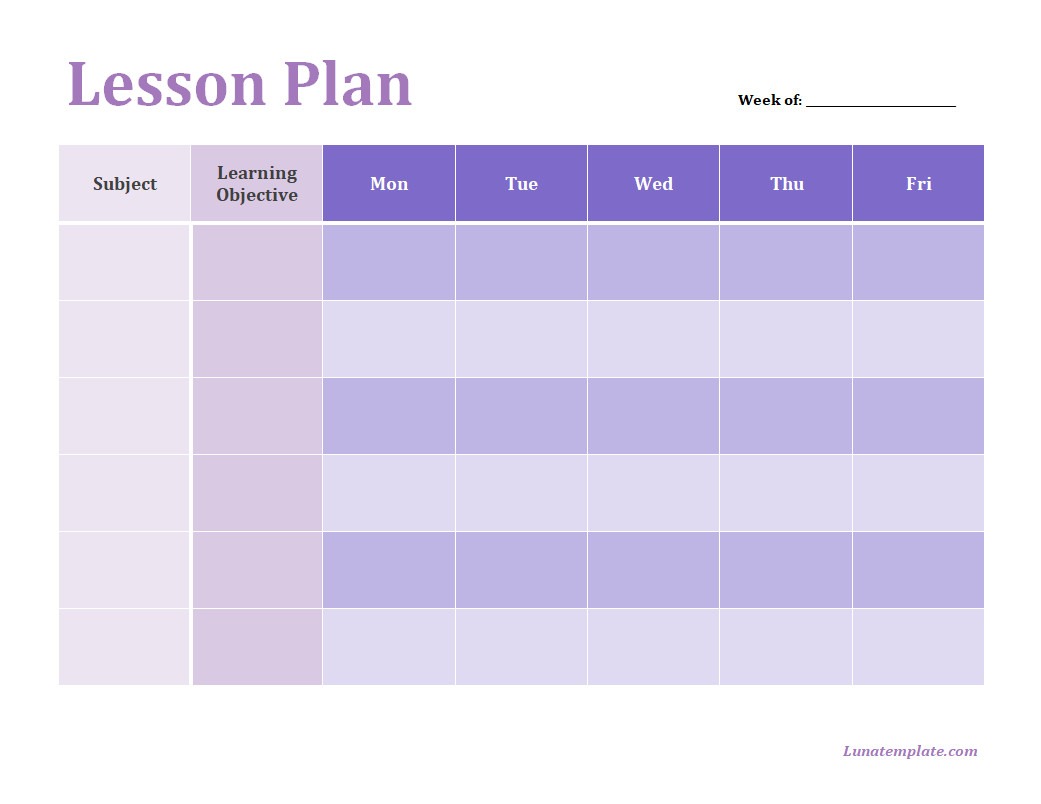A lesson plan is a written document that serves as a roadmap for teachers, outlining what students need to learn, how it will be taught, and how learning will be measured. It provides a detailed outline to follow for each class period, helping teachers be more effective in the classroom.
Lesson plans are essential tools for teachers, whether they are new to the profession or experienced educators. They provide structure and organization, ensuring that instructional objectives are met and that students are engaged in meaningful learning activities.
While lesson plans can vary in format and content, their main purpose remains the same: to guide teachers in delivering effective instruction and promoting student learning.

What Is The Main Purpose of a Lesson Plan?
The main purpose of a lesson plan is to provide teachers with a clear and concise outline of what needs to be taught and how it should be taught. It helps teachers stay focused and organized, ensuring that all necessary content and activities are covered within a specified timeframe.
Lesson plans also serve as a communication tool between teachers and students, providing a roadmap for learning. They help students understand what is expected of them and give them a sense of direction and structure in their learning journey.
Furthermore, lesson plans allow for reflection and evaluation of teaching practices. By reviewing and analyzing the effectiveness of their lesson plans, teachers can make adjustments and improvements to better meet the needs of their students.
Elements of a Great Weekly Lesson Plan
A great weekly lesson plan consists of several key elements that ensure effective instruction and promote student engagement. These elements include:
- Clear Learning Objectives: Every lesson plan should have clearly defined learning objectives that outline what students are expected to know or be able to do by the end of the lesson.
- Assessment Strategies: Lesson plans should include assessment strategies to measure student learning and understanding. This can include formative assessments, such as quizzes or class discussions, as well as summative assessments, such as tests or projects.
- Instructional Activities: A well-designed lesson plan includes a variety of instructional activities that engage students and promote active learning. These activities can include group work, hands-on experiments, discussions, or multimedia presentations.
- Resources and Materials: Lesson plans should identify the resources and materials needed for instruction, such as textbooks, worksheets, videos, or online resources. Having these materials prepared in advance ensures smooth delivery of the lesson.
- Differentiation Strategies: Effective lesson plans address the diverse needs of students by incorporating differentiation strategies. This can include providing accommodations for students with special needs, challenging advanced learners, or adapting instruction for English language learners.
Strategies for Effective Lesson Planning
Creating an effective lesson plan requires careful thought and preparation. Here are some strategies to consider when planning your weekly lessons:
- Align with Curriculum Standards: Ensure that your lesson plan aligns with the curriculum standards and learning objectives set by your school or district. This will help you stay focused on what is important for student learning.
- Consider Prior Knowledge: Take into account the existing knowledge and skills of your students. Build upon their prior knowledge and make connections to new concepts to enhance understanding.
- Use Engaging Activities: Incorporate a variety of engaging activities that cater to different learning styles and preferences. This will help maintain student interest and promote active participation.
- Provide Clear Instructions: Communicate the objectives, instructions, and expectations to your students. Use simple and concise language, and provide examples or models when necessary.
- Allow for Flexibility: Be prepared to make adjustments to your lesson plan based on the needs and interests of your students. Flexibility allows for spontaneity and student-centered learning.
The Benefits of Using Weekly Lesson Plans
weekly lesson plans offer several benefits for teachers:
- Organization: Having a lesson plan allows teachers to stay organized and keep track of what has been covered and what needs to be taught in each class.
- Easy Reference: lesson plans serve as a quick and easy reference during instruction. Teachers can refer to their plans to ensure they are covering all the necessary content and activities.
- Consistency: By using a weekly lesson plan, teachers can ensure consistency in their instruction across different classes or periods. This helps maintain a cohesive learning experience for students.
- Collaboration: lesson plans can be easily shared with other teachers or administrators, allowing for collaboration and feedback. This promotes professional growth and improvement.
Conclusion
Weekly lesson plans are valuable tools that help teachers be more effective in the classroom. By providing a detailed outline to follow each class period, they ensure that instructional objectives are met and that students are engaged in meaningful learning activities.
When creating a lesson plan, it is important to include clear learning objectives, assessment strategies, instructional activities, resources and materials, and differentiation strategies. Additionally, following effective lesson planning strategies, such as aligning with curriculum standards and using engaging activities, can further enhance the effectiveness of your lessons.
By utilizing weekly lesson plans, teachers can stay organized, maintain consistency, and promote collaboration. Ultimately, these plans contribute to a more productive and engaging learning environment for both teachers and students.
Weekly Lesson Plan Template – Word